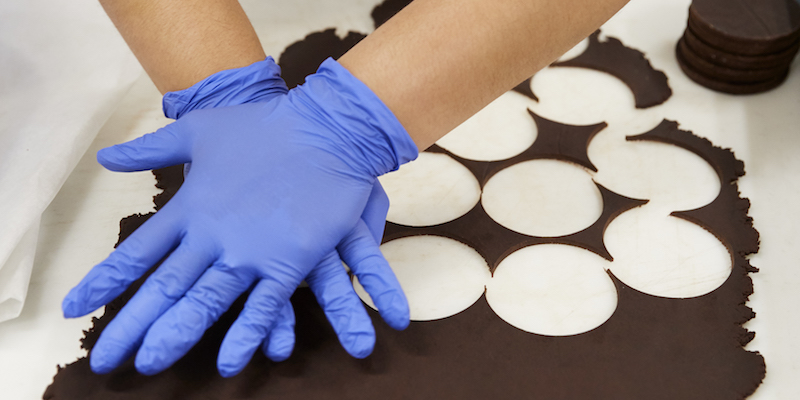- Home
- News
- 2018
- Sanitation & Hygiene
- Handling Food? It Pays to Practice Good Personal Hygiene
Handling Food? It Pays to Practice Good Personal Hygiene

Chefs and restaurant/kitchen managers need to stress the importance of personal hygiene to staff so safe food handling practices are adopted in the workplace. Staff who routinely do not wash their hands, wear dirty clothing, arrive in poor health or even demonstrate poor work practices can be the cause of unsafe food handling techniques that result in food poisoning outbreaks. The damage this can do to patron’s lives and the reputation of food outlets can be significant. So let’s examine how to professionally address these areas.
Hand Washing
1. Use warm-hot water to remove visible grime.
2. Apply liquid soap and lather foam across total hand surface for minimum 20 seconds.
3. Scrub if required ensuring fingernails are clean.
4. Rinse for 20 seconds and be sure to point fingers down.
5. Turn off tap using a paper towel.
6. Dry hands using clean paper towel or air dryer.
Following these simple steps will ensure hands do not harbour dangerous germs.
Wear Clean Clothes
Dirty clothes are a common cause of cross-contamination. Bacteria lives in stains and can be easily transferred from one part of the kitchen to another. Always use quality detergents to ensure clothes are clean and when not in use store them in a place which is free of contaminants.
Always discard single use items like some gloves and hairnets and minimise jewellery in professional kitchens.
Employee Health
The demands of safe food handling techniques necessitate all kitchen staff are healthy when at work. Kitchens are often steamy and warm environments which are perfect for the transference of viruses and bacteria from one host to another. A seemingly harmless sneeze may carry millions of virus-laden droplets and bacteria across a room quickly, land in food and be served to customers. Precautions must be taken to ensure public health is protected.
Food handlers need to also ensure that cuts and grazes are disinfected and covered with quality dressings. Any food handler with discharges from eyes, ears and noses must be kept away from food preparation areas.
Workplace Behaviours
1. Do not unnecessarily touch ready-to-eat foods like salads, cooked meats or fruit.
2. Kitchens are non-smoking environments. Smokers must do so outside and wash hands before resuming contact with food.
3. Remove facial perspiration with a paper towel, discard it and wash hands.
4. Do not touch face, hair, clothing or jewellery while involved in the preparation of food.
5. Do not chew gum.
6. Wash hands after coughing or sneezing and replace any gloves that may have been contaminated.
7. Change any protective clothing if moving from one workstation to another.
Observing these practices will play a huge role in helping to maintain public safety and the reputation of the establishment. When purchasing any items mentioned in this article, ensure they are of premium grade and comply with relevant safe food handling regulations.




















































































